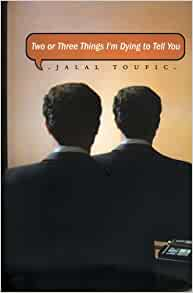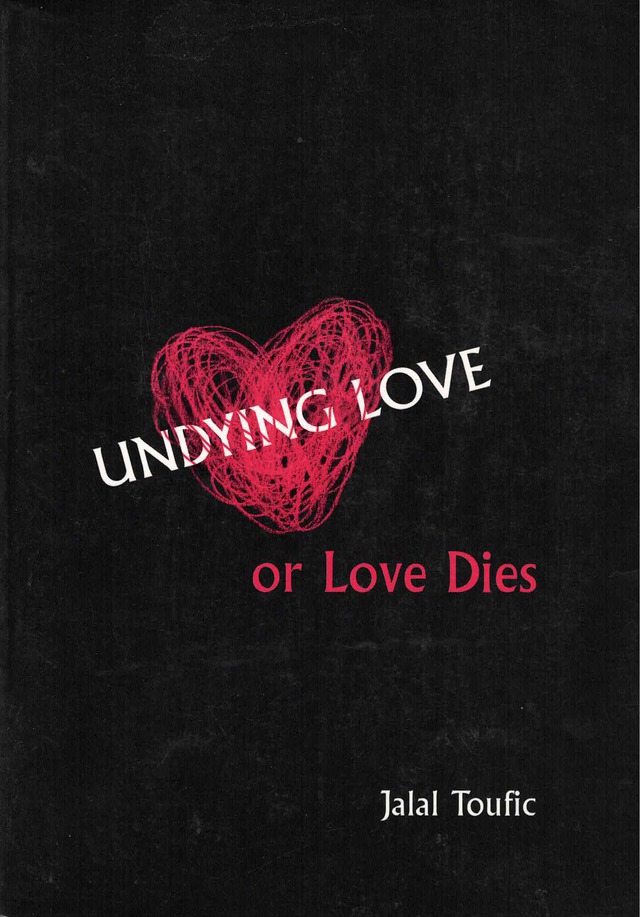What was Orpheus dying to tell his wife, Eurydice? What was Judy dying to tell her beloved, Scottie, in Hitchcock’s Vertigo? What were the previous one-night wives of King Shahrayar dying to tell Scheherazade? What was the Christian God “dying” to tell us? What were the faces of the candidates in the 2000 parliamentary election in Lebanon “dying” to tell voters and nonvoters alike? While writing (Vampires): An Uneasy Essay on the Undead in Film and Undying Love, or Love Dies, I, a mortal to death, was dying to tell these books’ readers and myself about diegetic silence-over, which produces a dead stop and reveals the occasional natural immobilization of the living as merely a variety of movement; and an unreality that sometimes behaves in a filmic manner, inducing the undead to wonder: “Am I in a film?”; as well as a significant number of other anomalies. This new book contains two or three additional things I am dying to tell its readers.
— Jalal Toufic
Jalal Toufic
Praise for Two or Three Things I’m Dying to Tell You
Resurrection through simulation—an end time fantasy in real time. The graves open… The dead walk… Toufic is a sort of postructuralist spiritualist, a critical medium for the peculiar specters that haunt the society of the spectacle.
— Ben Lerner, First Intensity
Jalal Toufic is an amazing writer. He documents the moves of consciousness in a way that leads the reader ever deeper, from impasse to illusion to new impasse—turning the trap of “what can’t be name” into a true paradise.
— Richard Foreman





I have offered in my books several examples “of what I regard as ‘exegesis'” (Nietzsche)—a video is prefixed in the tele-mode, at a distance, to an essay, which is in part an exegetical explication [Latin explicatus, past participle of explicare, literally, to unfold, from ex- + plicare to fold] of it…
— Jalal Toufic in conversation with Hans Ulrich Olbrist, Global Art Forum